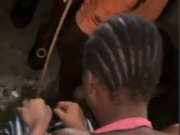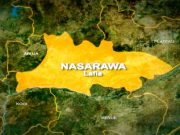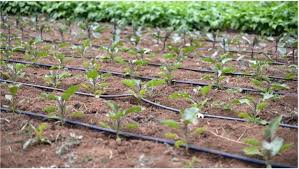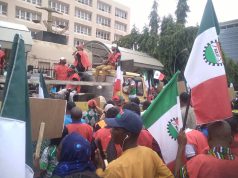FG to irrigate 24,000 hectares of farmland in 2023 – REA
According to the just-released REA Capital Project Report 2023, the Rural Electrification Agency irrigated over 24,000 hectares of farmland in 2023. Last year, the Federal Government announced plans to bring 500,000 hectares of irrigable land under cultivation for dry season agriculture to enhance food security in Nigeria.
The initiative was reiterated by the Minister of Water Resources and Sanitation, Professor Joseph Utse, during the launch of the 2023 Dry Season Agriculture Programme by the Benin-Owena River Basin Development Authority in November. In July 2024, food and non-alcoholic beverage inflation hit 40.8%, contributing to 51.8% of the overall year-on-year inflation rate. Experts attribute the rise in food prices to multiple factors including insecurity, climate change and the devaluation of the naira.
According to Tobi Awolope, an agricultural economist at the Federal University of Agriculture, Abeokuta, climate change is the main cause of Nigeria’s alarming hunger rate. “Climate change has reversed progress towards achieving Sustainable Development Goals 1 and 2, which aim to eradicate poverty and hunger,” Awolope said.
He stressed the need for government support to mitigate the impacts of climate change on farmers and recommended input subsidies, technical assistance and irrigation support to improve farmers’ resilience and productivity. To address food shortages caused by drought, REA has provided facilities to irrigate 24,000 hectares of farmland across the country. According to the report, REA has also deployed 330 kilowatt mini-grids, installed 15 mini-grids, reached over 2,461 connections and constructed six electric vehicle charging stations in Adamawa, Enugu, Oyo, Kano, Delta States and the FCT.
The agency has distributed 11,668 solar-powered irrigation pumps, installed 200 kWp, and trained over 500 farmers on how to use solar-powered irrigation pumps. In the North-West region, REA deployed 41 solar-powered pumps in Jigawa, Kano and Kaduna states, 38 in Kebbi, 36 in Sokoto, 37 in Zamfara and 44 in Kebbi. In the South-South region, 67 solar irrigation pumps were received in Akwa Ibom, 29 in Bayelsa, 86 in Cross River, 42 in Delta and 54 in Edo. In the North-Central region, 77 in Abuja Capital Territory, 34 in Nasarawa, 29 in Niger State, 35 in Plateau, 86 in Kaduna and 29 in Benue State.
In the North-East, 63 solar irrigation pumps were deployed in Adamawa State, 54 in Bauchi, 59 in Borno, 30 in Gombe, 34 in Taraba and 33 in Yobe State. In the South East, Anambra State received 37 solar irrigation pumps (Abia 103, Enugu 74 and Ebonyi State 64) while in the South West, Lagos State received 37 solar irrigation pumps (Osun 103, Ondo 74 and Oyo State 64).
According to the report, the Minister of Energy, Adebayo Adelabu, explained that REA’s efforts are central to the Federal Government’s agenda to alleviate energy poverty and promote socio-economic growth in underserved communities. “Energy is key to sustainable development,” Adelabu said, noting that the agency’s efforts are crucial to transforming Nigeria’s power landscape. “As we continue to expand the impact of the Federal Government’s budgetary allocation for rural electrification, agricultural clusters will be impacted and socio-economic systems will be strengthened,” he added. The Managing Director and CEO of REA, Abba Abubakar, stressed the agency’s commitment to supporting the rural economy through sustainable energy.
According to the United Nations, the number of hungry people in Nigeria is expected to continue to rise. By 2030, 82 million people are expected to go hungry. FG to irrigate 24,000 hectares of farmland in 2023 – REA September 1, 2024 Climate Change File: Climate Change From Daniel Haddadji The Rural Electrification Agency irrigated more than 24,000 hectares of farmland in 2023, according to the just-released REA 2023 Capital Projects Report. Last year, the Federal Government announced plans to cultivate 500,000 hectares of irrigable land for dry season agriculture to enhance food security in Nigeria.
The initiative was reiterated by the Minister of Water Resources and Sanitation, Professor Joseph Utse, during the launch of the 2023 Dry Season Agriculture Programme by the Benin-Owena River Basin Development Authority in November. According to the United Nations, the number of hungry people in Nigeria is expected to continue to rise. By 2030, 82 million people are expected to go hungry. In July 2024, food and non-alcoholic beverage inflation reached 40.8%, contributing to 51.8% of the overall year-on-year inflation rate. Experts attribute the food price hike to several factors including insecurity, climate change and the devaluation of the naira. According to Tobi Awolope, an agricultural economist at the Federal University of Agriculture, Abeokuta, climate change is the main cause of Nigeria’s alarming hunger rate. “Climate change has reversed progress towards achieving Sustainable Development Goals 1 and 2, which aim to eradicate poverty and hunger,” Awolope said. He stressed the need for government support to mitigate the impacts of climate change on farmers and recommended input subsidies, technical assistance and irrigation support to improve farmers’ resilience and productivity.
To combat food insecurity due to drought, REA has provided irrigation facilities to 24,000 hectares of farmland across the country. According to the report, the REA has also deployed 330 kilowatt mini-grids in Adamawa, Enugu, Oyo, Kano, Delta States and the FCT, installed 15 mini-grids, established over 2,461 connections and constructed six electric vehicle charging stations. The agency has distributed 11,668 solar-powered irrigation pumps, installed 200 kWp and trained over 500 farmers on how to use solar irrigation pumps. Related News FG provides $800 million for construction of substations and distribution lines Rus, Yaba Mental Hospital heads welcome FG power subsidy FG spent 14 billion naira on 16 foreign missions without envoy – report For the North-West region, REA provided 41 solar-powered pumps to Jigawa, Kano and Kaduna states, 38 to Kebbi, 36 to Sokoto, 37 to Zamfara and 44 to Kebbi. For the South-South region, Akwa Ibom received 67 solar irrigation pumps, Bayelsa 29, Cross River 86, Delta 42 and Edo State 54. In the North Central region, 77 pumps were provided to Abuja Capital Territory, 34 to Nasarawa, 29 to Niger, 35 to Plateau, 86 to Kaduna and 29 to Benue State. In the Northeast, Adamawa state received 63 solar irrigation pumps, Bauchi 54, Borno 59, Gombe 30, Taraba 34 and Yobe.






















[…] JAMB tells HND graduates,don’t blame us for your inability to particapate for NYSC. The Joint Admissions and Matriculation Board (JAMB) has asked HND graduates not to blame the JND for their failure to attend the recent National Youth Service Corps. The board was responding to claims by NYSC candidates that it was the board’s fault for their failure to attend the mandatory one-year programme. […]